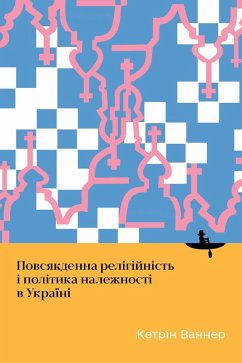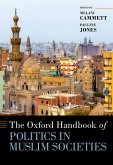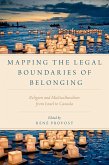ENG
Everyday Religiosity and the Politics of Belonging in Ukraine reveals how and why religion has become a pivotal political force in a society struggling to overcome the legacy of its entangled past with Russia and chart a new future. If Ukraine is "ground zero" in the tensions between Russia and the West, religion is an arena where the consequences of conflicts between Russia and Ukraine keenly play out.
Vibrant forms of everyday religiosity pave the way for religion to be weaponized and securitized to advance political agendas in Ukraine and beyond. These practices, Catherine Wanner argues, enable religiosity to be increasingly present in public spaces, public institutions, and wartime politics in a pluralist society that claims to be secular.
Based on ethnographic data and interviews conducted since before the Revolution of Dignity and the outbreak of armed combat in 2014, Wanner investigates the conditions that catapulted religiosity, religious institutions, and religious leaders to the forefront of politics and geopolitics.
UA
¿¿¿¿¿¿¿¿¿¿¿ ¿¿¿¿¿¿¿¿¿¿¿¿ ¿ ¿¿¿¿¿¿¿¿ ¿¿¿¿¿¿¿¿¿¿ ¿ ¿¿¿¿¿¿¿ ¿¿¿¿¿¿¿¿¿¿¿ ¿¿¿¿¿¿¿¿¿, ¿¿ ¿ ¿¿¿¿ ¿¿¿¿¿¿¿ ¿¿¿¿¿ ¿¿¿¿¿¿¿¿ ¿¿¿¿¿¿¿¿¿¿ ¿¿¿¿¿ ¿ ¿¿¿¿¿¿¿¿¿¿¿, ¿¿¿¿¿ ¿¿¿¿¿¿¿¿¿¿¿ ¿¿¿¿¿¿¿¿ ¿¿¿¿¿¿¿¿ ¿¿¿¿¿ ¿¿¿¿¿¿¿¿, ¿¿¿'¿¿¿¿¿¿¿ ¿ ¿¿¿¿¿¿, ¿ ¿¿¿¿¿¿¿¿¿ ¿¿¿¿ ¿¿¿¿¿¿¿¿. ¿¿¿¿ ¿¿¿¿¿¿¿ ¿ ¿¿¿¿¿¿¿¿¿¿ ¿¿¿¿¿¿¿ ¿¿¿ ¿¿¿¿¿¿ ¿¿ ¿¿¿¿¿¿¿, ¿¿ ¿¿¿¿¿¿¿ - ¿¿¿¿¿, ¿¿ ¿¿¿¿¿¿ ¿¿¿¿¿¿¿¿¿¿¿¿ ¿¿¿¿¿¿¿¿ ¿¿¿¿¿¿¿¿¿¿ ¿¿¿ ¿¿¿¿¿¿ ¿¿ ¿¿¿¿¿¿¿¿.
¿¿¿¿¿¿¿ ¿¿¿¿¿ ¿¿¿¿¿¿¿¿¿¿¿¿ ¿¿¿¿¿¿¿¿¿¿¿¿ ¿¿¿¿¿¿¿¿ ¿¿¿¿¿¿¿¿¿¿¿ ¿¿¿¿¿¿¿ ¿¿¿ ¿¿¿¿¿¿¿¿¿¿ ¿¿¿¿¿¿¿¿¿¿ ¿¿¿¿¿¿¿ ¿ ¿¿¿¿¿¿¿ ¿¿ ¿¿ ¿¿ ¿¿¿¿¿¿. ¿¿ ¿¿¿¿¿¿¿¿, ¿¿¿¿¿¿¿¿¿ ¿¿¿¿¿¿ ¿¿¿¿¿¿, ¿¿¿¿¿¿¿¿¿¿ ¿¿¿¿¿¿¿¿¿¿¿¿ ¿¿¿¿ ¿¿¿ ¿¿¿¿¿ ¿¿¿¿¿¿¿¿¿¿ ¿ ¿¿¿¿¿¿¿¿¿¿¿ ¿¿¿¿¿¿, ¿¿¿¿¿¿¿¿¿ ¿¿¿¿¿¿¿¿¿ ¿ ¿¿¿¿¿¿¿¿ ¿¿¿¿¿¿¿¿ ¿¿¿¿ ¿ ¿¿¿¿¿¿¿¿¿¿¿¿¿¿¿ ¿¿¿¿¿¿¿¿¿¿¿, ¿¿¿ ¿¿¿¿¿¿¿¿¿ ¿¿ ¿¿, ¿¿¿ ¿¿¿¿ ¿¿¿¿¿¿¿¿¿.
¿¿¿¿¿¿¿¿¿¿¿ ¿¿ ¿¿¿¿¿¿¿¿¿¿¿¿¿ ¿¿¿¿¿ ¿¿ ¿¿¿¿¿¿'¿, ¿¿¿¿¿¿¿¿¿¿ ¿¿ ¿¿ ¿¿¿¿¿¿¿¿¿ ¿¿¿¿¿¿¿¿ ¿¿ ¿¿ ¿¿¿¿¿¿¿ ¿¿¿¿¿¿¿¿ ¿¿¿¿ 2014 ¿¿¿¿, ¿¿¿¿¿¿ ¿¿¿¿¿¿¿¿¿ ¿¿¿¿¿, ¿¿¿ ¿¿¿¿¿¿ ¿¿¿¿¿¿¿¿¿¿¿¿, ¿¿¿¿¿¿¿¿¿ ¿¿¿¿¿¿¿¿¿¿ ¿¿ ¿¿¿¿¿¿¿¿¿¿ ¿¿¿¿¿¿¿ ¿¿ ¿¿¿¿¿¿¿¿ ¿¿¿¿ ¿¿¿¿¿¿¿¿ ¿¿ ¿¿¿¿¿¿¿¿¿¿¿.
Everyday Religiosity and the Politics of Belonging in Ukraine reveals how and why religion has become a pivotal political force in a society struggling to overcome the legacy of its entangled past with Russia and chart a new future. If Ukraine is "ground zero" in the tensions between Russia and the West, religion is an arena where the consequences of conflicts between Russia and Ukraine keenly play out.
Vibrant forms of everyday religiosity pave the way for religion to be weaponized and securitized to advance political agendas in Ukraine and beyond. These practices, Catherine Wanner argues, enable religiosity to be increasingly present in public spaces, public institutions, and wartime politics in a pluralist society that claims to be secular.
Based on ethnographic data and interviews conducted since before the Revolution of Dignity and the outbreak of armed combat in 2014, Wanner investigates the conditions that catapulted religiosity, religious institutions, and religious leaders to the forefront of politics and geopolitics.
UA
¿¿¿¿¿¿¿¿¿¿¿ ¿¿¿¿¿¿¿¿¿¿¿¿ ¿ ¿¿¿¿¿¿¿¿ ¿¿¿¿¿¿¿¿¿¿ ¿ ¿¿¿¿¿¿¿ ¿¿¿¿¿¿¿¿¿¿¿ ¿¿¿¿¿¿¿¿¿, ¿¿ ¿ ¿¿¿¿ ¿¿¿¿¿¿¿ ¿¿¿¿¿ ¿¿¿¿¿¿¿¿ ¿¿¿¿¿¿¿¿¿¿ ¿¿¿¿¿ ¿ ¿¿¿¿¿¿¿¿¿¿¿, ¿¿¿¿¿ ¿¿¿¿¿¿¿¿¿¿¿ ¿¿¿¿¿¿¿¿ ¿¿¿¿¿¿¿¿ ¿¿¿¿¿ ¿¿¿¿¿¿¿¿, ¿¿¿'¿¿¿¿¿¿¿ ¿ ¿¿¿¿¿¿, ¿ ¿¿¿¿¿¿¿¿¿ ¿¿¿¿ ¿¿¿¿¿¿¿¿. ¿¿¿¿ ¿¿¿¿¿¿¿ ¿ ¿¿¿¿¿¿¿¿¿¿ ¿¿¿¿¿¿¿ ¿¿¿ ¿¿¿¿¿¿ ¿¿ ¿¿¿¿¿¿¿, ¿¿ ¿¿¿¿¿¿¿ - ¿¿¿¿¿, ¿¿ ¿¿¿¿¿¿ ¿¿¿¿¿¿¿¿¿¿¿¿ ¿¿¿¿¿¿¿¿ ¿¿¿¿¿¿¿¿¿¿ ¿¿¿ ¿¿¿¿¿¿ ¿¿ ¿¿¿¿¿¿¿¿.
¿¿¿¿¿¿¿ ¿¿¿¿¿ ¿¿¿¿¿¿¿¿¿¿¿¿ ¿¿¿¿¿¿¿¿¿¿¿¿ ¿¿¿¿¿¿¿¿ ¿¿¿¿¿¿¿¿¿¿¿ ¿¿¿¿¿¿¿ ¿¿¿ ¿¿¿¿¿¿¿¿¿¿ ¿¿¿¿¿¿¿¿¿¿ ¿¿¿¿¿¿¿ ¿ ¿¿¿¿¿¿¿ ¿¿ ¿¿ ¿¿ ¿¿¿¿¿¿. ¿¿ ¿¿¿¿¿¿¿¿, ¿¿¿¿¿¿¿¿¿ ¿¿¿¿¿¿ ¿¿¿¿¿¿, ¿¿¿¿¿¿¿¿¿¿ ¿¿¿¿¿¿¿¿¿¿¿¿ ¿¿¿¿ ¿¿¿ ¿¿¿¿¿ ¿¿¿¿¿¿¿¿¿¿ ¿ ¿¿¿¿¿¿¿¿¿¿¿ ¿¿¿¿¿¿, ¿¿¿¿¿¿¿¿¿ ¿¿¿¿¿¿¿¿¿ ¿ ¿¿¿¿¿¿¿¿ ¿¿¿¿¿¿¿¿ ¿¿¿¿ ¿ ¿¿¿¿¿¿¿¿¿¿¿¿¿¿¿ ¿¿¿¿¿¿¿¿¿¿¿, ¿¿¿ ¿¿¿¿¿¿¿¿¿ ¿¿ ¿¿, ¿¿¿ ¿¿¿¿ ¿¿¿¿¿¿¿¿¿.
¿¿¿¿¿¿¿¿¿¿¿ ¿¿ ¿¿¿¿¿¿¿¿¿¿¿¿¿ ¿¿¿¿¿ ¿¿ ¿¿¿¿¿¿'¿, ¿¿¿¿¿¿¿¿¿¿ ¿¿ ¿¿ ¿¿¿¿¿¿¿¿¿ ¿¿¿¿¿¿¿¿ ¿¿ ¿¿ ¿¿¿¿¿¿¿ ¿¿¿¿¿¿¿¿ ¿¿¿¿ 2014 ¿¿¿¿, ¿¿¿¿¿¿ ¿¿¿¿¿¿¿¿¿ ¿¿¿¿¿, ¿¿¿ ¿¿¿¿¿¿ ¿¿¿¿¿¿¿¿¿¿¿¿, ¿¿¿¿¿¿¿¿¿ ¿¿¿¿¿¿¿¿¿¿ ¿¿ ¿¿¿¿¿¿¿¿¿¿ ¿¿¿¿¿¿¿ ¿¿ ¿¿¿¿¿¿¿¿ ¿¿¿¿ ¿¿¿¿¿¿¿¿ ¿¿ ¿¿¿¿¿¿¿¿¿¿¿.
Dieser Download kann aus rechtlichen Gründen nur mit Rechnungsadresse in A, D ausgeliefert werden.









